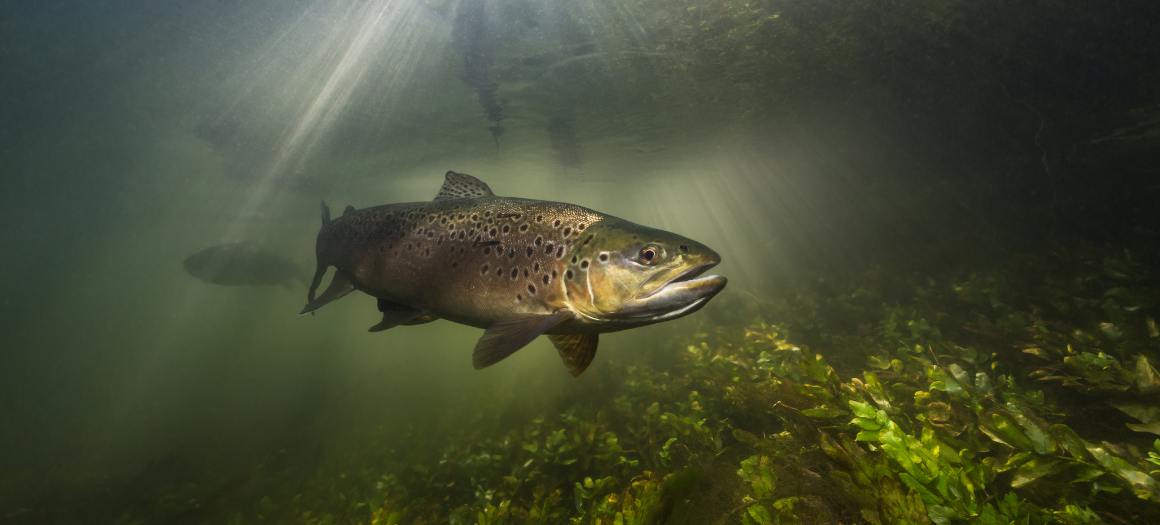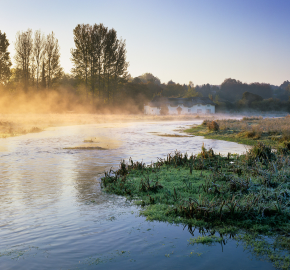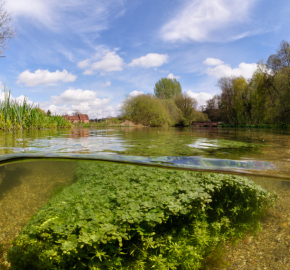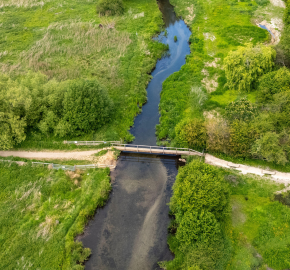WildFish Challenges Vitacress Salads’ Discharge Permit Application

WildFish has formally responded to Vitacress Salads Limited’s application for a new discharge permit at its salad-washing plant on the Bourne Rivulet in Hampshire.
The VSL site at Lower Link Farm seeks to merge two existing discharge permits into one, allowing its existing operations to continue under revised conditions (a discharge permit is the legal authorisation required to discharge liquid waste and/or pollutants into any water or land resource for a specified period). Without urgent and effective action to stop and clean up current pesticide pollution, this change risks continued and unacceptable harm to a highly sensitive chalk stream ecosystem.
Why WildFish opposes the application
This proposal from Vitacress Salads Limited (VSL) fails to protect the river, its wildlife – including endangered salmon populations – and the wider environment. We urge immediate measures to safeguard this precious habitat and protect it from:
1. High Levels of Chemical Pollution
VSL is releasing dangerous levels of pesticides into the Bourne Rivulet – a small but ecologically vital chalk stream that feeds into the River Test. This fragile ecosystem supports sensitive species – including salmon that migrate between the rivers – and is particularly vulnerable to pollution.
2. Inadequate Water Treatment
VSL has yet to install a fully approved water treatment system – whether ozone-based or another method – capable of reducing harmful chemicals to safe levels. Their current plans are vague, with estimated timelines of 2–3 years or longer, during which pollution would persist.
3. Flawed Detection and Monitoring
Significant gaps exist in how pesticide levels are measured. VSL’s current methods may fail to detect all harmful chemicals, and their proposal relies on less specific tests that do not adequately assess the impact on aquatic life.
4. New Pesticides and the Combined Effects
Since 2022, VSL has introduced several new pesticides without proper environmental impact assessments. There is also a serious concern about the “cocktail effect” – where multiple chemicals interact to create a far more toxic impact than any single pesticide alone.
5. Existing Pollution and Regulatory Non-Compliance
Water sampling data already shows pollution levels exceeding safe environmental standards. First and foremost, VSL should concentrate on this current non-compliance.
We Must Protect Our Chalk Streams
Over 85% of the world’s chalk streams are found in England – making them as internationally rare and ecologically significant as coral reefs or rainforests. Yet, these fragile ecosystems are increasingly threatened by human activity.
To safeguard the Bourne Rivulet and its wild fish populations, WildFish is calling for:
- All salad washing and discharge activities to stop immediately until VSL can demonstrate that their water treatment system is fully approved, in place, and effectively removes pesticides to meet environmental safety standards.
- More rigorous, agreed‑upon methods for detecting and monitoring chemical levels (using toxicity-based measures rather than just general pollution indicators) must be established.
- A full, detailed plan with clear timelines must be provided to address both the current and potential future chemical risks before any changes to the permit are allowed.
Want to stay up to date with our work to protect chalk streams? Follow the link below to subscibe today!
SIGN ME UP



William Daniel took me to the Bourne many years ago it was a wonderful experience.
That bagged salads is allowed to wreck it is a disgrace. Never ever buy Vitacress anything and tell Waitrose that. C h
22 years since the EA first permitted these Industrial Wash Water Discharge with Conditions that have been breached ever since. Only now, with the new Permit Application documents do we ( and the EA somewhat belatedly) know about the pesticides being released into the groundwater and surface water of the Iconic Bourne Rivulet. Little wonder the gammarus numbers are way down for such a headwater, HPG must be turning in his grave just downstream at Hurstbolurne Priors. Last chance saloon for the Industrial Permits and Abstraction to be fully addressed by the EA.